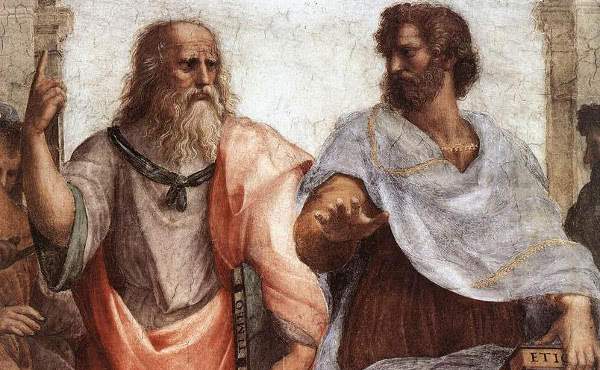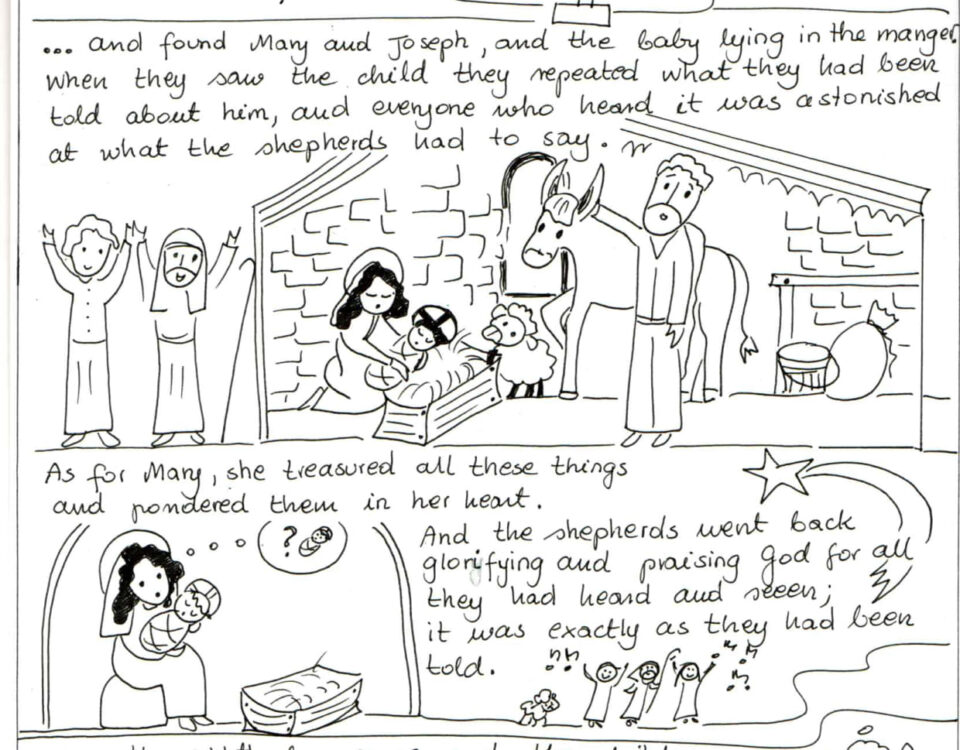Divine Retreat Centre UK – Official Website
What is Lent?
February 27, 2023Exodus Bible Study – Chapter 3
March 25, 2023The argument:
If Jesus died to save us from our sins, why do you Catholics believe in morbid concepts such as purgatory, which indicate that it is a form of just punishment for our sins? In fact, as a true believer in Christ, I know Jesus already paid the price for my sins, so that I need not. Purgatory is ridiculous, just meant to scare people!
As Catholics, we might find ourselves getting into a deadlock when many of our well-meaning Christian friends of other denominations, bring up this argument. Some of us may feel helpless in the defense of our faith with such statements from them, that sound “overall” correct.
Why purgatory, what happens there and is it all bad?
To begin with, from a fundamental point, are we ourselves convinced about the existence of purgatory?
We are like gold and our preciousness is manifested by our dazzling shine, which takes place through purification, either through the earthly fire of trials or purgatory’s refining bath of fire.
“The fire will test what sort of work each one has done … If any man’s work is burned up, he will suffer loss, though he himself will be saved, but only as through fire” 1 Corinthians 3:13, 15.
Among many saints, Saint Catherine of Genoa also revealed, “They (souls in purgatory) suffer, but, at the same time, they rejoice in adoring His greatness and recognizing His sanctity…”
Far from Purgatory meaning to scare a Catholic, but by believing in its existence, we are one of the most fortunate of all denominations, as we tend to shorten our stay there, by being more prepared, as an informed Christian.
Is it unavoidable?
If anyone serves me, he must follow me; and where I am, there will my servant be also… John 12:26
At the start of Jesus’ own life, He was presented with gifts of divine royalty by the wise men, signifying His life’s goal. Gold – purification for perfection, incense – prayers and self-offering to God and myrrh – embalming ointment representing a life of martyrdom sacrifice.
For the Bible says that even Jesus had to be made a perfect leader, through suffering.
..And it was only right that he should make Jesus, through his suffering, a perfect leader, fit to bring them into their salvation. Hebrews 2:10
Being His disciple, it should also sum up our lives from the moment of our baptism. For we like Him are called to be made perfect, through purification – like gold, once purified can never be corroded. For this we have to like incense, make a self-offering and prayers to God, to receive the power to accept the embalming of bitter myrrh trials, but for what? In the end God’s purpose is for us to achieve a breakthrough, as conquerors over our suffering, and shine like gold.
How then can one think that Jesus did all the work for us, and we only need be grateful to Him, but are exempted from making self-reparation for our sin, if He took all the pains to set an example?
It may be challenging, but Christians are soldiers whose Master has called us to the challenge. He was serious in commanding us to be perfect, like His Father. He thus gave us the power to move ahead with His Holy Spirit.
If He came to write the law into our hearts, we have to work in following that law all the days of our pilgrim life and increasing and perfection as the years go by. Thus preparing ourselves for a happy new after life and spending the least time in Purgatory.
Scriptural evidence of a merciful God’s creation of purgatory, to shape us into souls of spiritual excellence:
The following points, are a detailed explanation from Jesus’s own declaration, as to the Church’s correct conclusions about purgatory.
- Our Jewish brother understood the cost of attaining complete salvation, more than any one of us.
So he ran ahead and climbed a sycamore-fig tree to see him, since Jesus was coming that way. When Jesus reached the spot, he looked up and said to him, “Zacchaeus, come down immediately. I must stay at your house today.” So he came down at once and welcomed him gladly. All the people saw this and began to mutter, “He has gone to be the guest of a sinner.” But Zacchaeus stood up and said to the Lord, “Look, Lord! Here and now I give half of my possessions to the poor, and if I have cheated anybody out of anything, I will pay back four times the amount.” Jesus said to him, “Today salvation has come to this house, because this man, too, is a son of Abraham. For the Son of Man came to seek and to save the lost.” Luke 19: 4-10
Herein, we will derive our understanding about purgatory, through Jesus and Zacchaeus own statements.
To the surprise of the Jews, Jesus befriended the outcast Zacchaeus who cheated his fellow Jews. He went a step further to invite Himself to Zac’s house, which was very significant, as God was reentering the heart of His son. Zacchaeus in-turn was joyfully surprised, especially in front of the Jews. Note what happens next..
Though Zacchaeus welcomed and believed in Jesus, as Jesus walked into his home, He deliberately held back the news about Zacchaeus’ salvation, up until the following moment.
The moment that Zacchaeus said two things:
A. That he would make reparation to those he unjustly took from, up to four times; herein he too was participating in confession (exactly like the sacrament) and reparation.
B. Thereafter he would give half his wealth to the poor! The second part of the sacrament of confession which is renunciation of the sin; in this case greed.
Jesus had been waiting for this and only now, exactly after Zacchaeus said this, Jesus readily declared he had been saved!
As a Jew, Zacchaeus understood that believing and inviting Jesus into his heart was not enough to straightaway reach heaven, but that he had to undergo the fire of purification by making amends which he did up to four times and renunciation. Exodus 22:1 1 “If a man steals an ox or a sheep, and kills it or sells it, he shall repay five oxen for an ox, and four sheep for a sheep.
And thereafter Zac even gave away half his wealth.
In the first half, Zac was repaying for what never belonged to him when he cheated, the second half was his actual donation or sacrifice of his wealth. This sacrifice would help him conquer the sin of greed.
This wise calculative Jewish tax collector smartly decided to finish his purgation on earth, than suffer more intensely in purgatory – and the saints ratify this!
His declaration also explains the foundation of the sacrament of confession.
As Catholics, we are aware that our time in Purgatory, is shortened through a proper self-examination and confession, which has to be followed by true remission of sins.
Are we as Catholics fools to believe in the sufferings of purgatory and be inspired to lessen our stay there, being mindful of our sinful tendencies and the reparation we have to pay?
No, by believing in this, your faith in fact is teaching you the fastest path to eternal riches.
- So what is the use of the sacrament of confession, if we have to anyway face purgatory?
A. Empowerment. Upon sincere confession Jesus empowers us, through His blood to stop the sin and even make reparation, just like Zacchaeus could easily do.
When we sin against our neighbor, it is firstly against God. In confession, we firstly get pardoned for offending Him.
If we doubt this fact, scripture conveys: The Lord said to Moses, “Say to the Israelites: ‘Any man or woman who wrongs another in any way and so is unfaithful to the Lord is guilty and must confess the sin they have committed. They must make full restitution for the wrong they have done, add a fifth of the value to it and give it all to the person they have wronged. Numbers 5:5-7
Similarly in the New Testament, the prodigal son declared (and note the particular order of his words): The son said to him, ‘Father, I have sinned against heaven and against you. – Luke 15:21
Zac was marred with an inferiority complex, he was indifferent towards damaging his soul by cheating, to feel secure hoarding wealth. Jesus sealed his bottomless pit of hunger for material security, with His own enriching love and thereafter with Zac’s self-worth restored, he felt greatly secure and readily gave away his wealth.
In this way, through confession, we stop adding sins to our soul, avoid further purification and amend our ways.
B. Mindfulness. Those who do not believe in purgatory, hold on strongly to Jesus’ payment, that it tends to make them a bit relaxed about sin. Many later do not realize certain sins are sins like premarital union, but a way of life, which the bible says is unacceptable to God.
But if they had value for a sacrament like confession, it would encourage them to be aware of all weaknesses and purge them, so that they would spend less time in purgatory.
- Some debate there is no purifying fire of purgatory, instead there are different levels of happiness in heaven and that according to our good deeds, we will merit a higher or lower level of a permanent blissful state, just by believing in Jesus.
The second part of this debate is that because of Christ’s sacrifice, we will be automatically made perfect, before entering heaven.
No, the Bible is very clear in teaching us that it is we who have to work toward our perfection here on earth, through the grace of God, before entering eternal life, because nothing unclean will enter it.
“But nothing unclean will ever enter it, nor anyone who practices an abomination or …” Revelations 21:27
Or do you not know that the unrighteous will not inherit the kingdom of God? Do not be deceived: neither the sexually immoral, nor idolaters, nor adulterers, nor men who practice homosexuality, nor thieves, nor the greedy, nor drunkards, nor revilers, nor swindlers will inherit the kingdom of God. Corinthians 6:9-10
Paul himself was speaking to the church of Corinth, the church of believers. So why did he need to warn them, if they were anyway made perfect by Jesus’ sacrifice?
None of us can declare that we are not guilty of one of the least of these offenses e.g. greed. If we claim to be without sin, we deceive ourselves and the truth is not in us. 1 John 1:8
God expects us to work to remove our worldly garment of materialism and wear with His garments of grace, purity and preparedness to receive Him.
But when the king came in to see the guests, he spotted a man who was not dressed in wedding clothes. ‘Friend,’ he asked, ‘how did you get in here without wedding clothes?’ But the man was speechless. Then the king told the servants, ‘Tie him hand and foot, and throw him into the outer darkness, where there will be weeping and gnashing of teeth.’ Matthew 22:11-13
At that time, grooms were to provide guests with wedding garments. The complacent man entered with sin soiled garments, refusing acceptance of clean wedding guest garments, as required by the Lord and so he was dispelled into darkness.
Then Jesus told his disciples, “If anyone would come after me, let him deny himself and take up his cross and follow me. For whoever would save his life will lose it, but whoever loses his life for my sake will find it. Matthew 16:24-25
In all sanity, if we believed in Jesus and His imploring words wholeheartedly, when we are on Earth, why is it that we do not strive to live perfect lives, as He pleaded and warned us about it Mathew 16:24-25?
Why would He unnecessarily ask us to walk the narrow path here on earth and sweat it, when He would anyway make us perfect upon our death before reaching heaven? It is because we will not go straight to heaven, but through the purification of purgatory, before reaching eternity, which we can work to lessen.
- The ultimate proof is Jesus speaks of some people who although believe in Him, is shunned away by Him. On earth, they dodged the cross and refused repentance. Now even after meeting Him ,as a judge on that appointed day notice they only boasted about their good works, but refused to admit their apparent failings that offended God!
Mathew 7:22-23 Many will say to Me on that day, ‘Lord, Lord, did we not prophesy in Your name, and in Your name drive out demons and perform many miracles?’ Then I will tell them plainly, ‘I never knew you; depart from Me, you workers of lawlessness!’
Taking the analogy of a student who passed in four out of ten subjects; where he did extremely well in the ones he passed in but failed in the rest. Can he expect to go to the next grade, which assumes he will use the knowledge he had to acquire the previous year, about the subjects he is not thorough in?
The bottom line is, no one escapes the painstaking effort of correction and being purified as sparkling gold, whether in this lifetime or thereafter. Hence no one can enter heaven, without purification, even though they believe Jesus is their Saviour.
Once again, are we as Catholics foolish to make mortifications during our lifetime to lessen purgatory, instead of enjoy this life and die believing that anyway Jesus will save us? Unless we also choose to wear the Pharisean blinders (that Jesus often spoke about), we cannot ignore that purgatory is very real! While we can definitely believe we will go to heaven, we need be sure of an adequate period, long or short, in Purgatory, which is why God wants us to be as perfect as we can, before we die.
At the end, our purification is for us to enjoy heaven being an invaluable pleasing bridal gift to our Lord and spouse, Christ.
“But you are to be perfect, even as your Father in heaven is perfect.” Matthew 5:48



